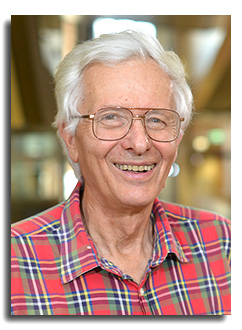
Abstract
[Editor's note: In Australia, the two major political parties have outlined significantly different climate change abatement policies. In this seminar, Mark Diesendorf analyses the potential abatement effectiveness of the more comprehensive and impactful policies of the Labor Party. In May, 2019 the Liberal Party was re-elected and thus, Labor’s climate change abatement polices are not to be implemented.]
ABSTRACT:
If Labor is elected in May, its climate/energy policies, if implemented, will cut emissions, create new jobs and reduce the wholesale price of electricity. But the seminar will show quantitatively that Labor's recently announced policies are very unlikely to achieve its own greenhouse gas emission reduction target of a 45% reduction in emissions from the 2005 level by 2030. Furthermore, they fall far short of the requirements of climate science. Based on recent research and the international literature, additional, stronger policies are proposed for electricity, transport and heating that could close the gap between aspiration and achievement.
Click here to see all available video seminars.
Click here to go to the SPREE HOMEPAGE.
Brief Bio
Dr Mark Diesendorf, BSc (Hons) PhD, originally trained in physics and applied mathematics. Nowadays, as an interdisciplinary researcher, he is Honorary Associate Professor in the School of Humanities & Languages at UNSW Sydney. Previously, at various times, he was a Principal Research Scientist in CSIRO, Professor of Environmental Science at UTS and Deputy Director of the former Institute of Environmental Studies at UNSW Sydney. His current research is on transitioning the energy sector to renewable energy and energy efficiency.
His most recent book is Sustainable Energy Solutions for Climate Change (Routledge and UNSW Press).
